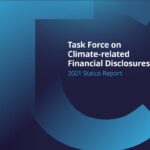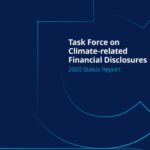
Bloomberg has created a guide to help you better understand the benefits of implementing the TCFD recommendations. The casualties of the climate crisis could include financial stability, the global economy, and the value of investments. As governments catch up to the realities of climate change and the policy response continues to gather pace, global markets need transparency into the financial impacts of climate change on companies. The Task Force on Climate-related Financial Disclosures (TCFD) released their recommendations in 2017 to improve and increase reporting of climate-related financial information. Today, 2,000+ organizations support TCFD, including 110+ regulators and government entities across 78 countries.
Why read this guide?
It outlines the benefits of climate reporting to firms such as yours, and explains how companies and regulators are implementing the TCFD recommendations.
Firms implementing the recommendations are able to:
- Efficiently identify climate-related opportunities and risks
- Proactively address investors’ demands for climate-related information in a framework that investors are increasingly asking for
- More effectively meet current requirements to report material information in financial filings
- Enhance risk management and strategic planning, through better understanding of climate risk
“Climate change isn’t just a serious and growing threat to people’s health and livelihoods – it’s a major economic risk. Especially as countries build greener, more resilient economies in the wake of the pandemic, it’s encouraging to see them support Task Force recommendations for reporting climate-related financial risks and opportunities.”- Michael R. Bloomberg, UN Special Envoy on Climate Ambition and Solutions, UN Ambassador for the Race to Zero and Race to Resilience, TCFD Chair and Founder of Bloomberg L.P. and Bloomberg Philanthropies



